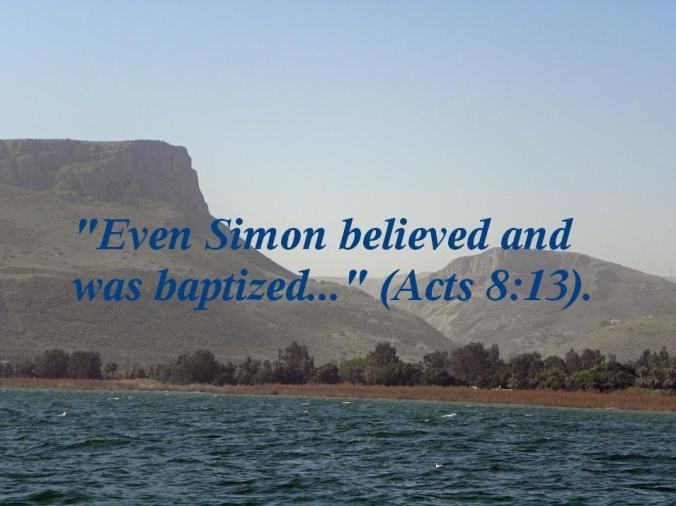“Go therefore and make disciples of all the nations…teaching them to observe all that I commanded you; and lo, I am with you always, even to the end of the age” (Matthew 28:19-20, NASB).
——————–
Contents:
1) Grand Themes in Scripture: Hope (Stan Cox)
2) Wake-Up Calls: Who Needs Them? (John Thompson)
——————–

-1-
Grand Themes in Scripture
Hope
Stan Cox
Hope is listed by the apostle Paul in 1 Corinthians 13:13 as one of three things which “abide.” “And now abide faith, hope, love, these three; but the greatest of these is love.”
Because of the great sacrifice of our Lord on the cross at Calvary, mankind will always have hope. Until the world ends, hope will continue. But, the concept of the Christians hope is one that may be unfamiliar to many.
It is important first to define what is meant by the term. Hope is defined by Webster’s in the following way:
to cherish a desire with expectation of fulfillment.
Or, as a synonym for trust:
To long for with expectation of obtainment.
This definition is an accurate explanation of the Biblical term as well. The Greek word elpis, is defined by W.E. Vine as, “favourable and confident expectation,” and states that the term has to do with “the unseen and future” (Vol. 2, pg. 232).
While the term is loosely used in our day, often referring to an idle dream rather than an actual expectation, it is important to note its scriptural use, and subsequent impact upon the Christian.
When the scriptures speak of hope, it is not an idle speculation concerning what might happen in the future. It is not a “pie-in-the-sky” gamble, with little chance of realization. Rather, it is founded in the promise of God, and the sacrifice of Jesus Christ. As we hope in the promises of God, we truly can expect to achieve the end He has reserved for us.
The reason for the sure and enduring nature of our hope is its foundation. Note Paul’s words, “To them God willed to make known what are the riches of the glory of this mystery among the Gentiles: which is Christ in you, the hope of glory” (Colossians 1:27).
We use the term in this sense from time to time, in the same way Luke used it in Acts 16:19, when he wrote about the slave owner’s loss of profitability because of Paul’s exorcism of the spirit-possessed girl. “But when her masters saw that their hope of profit was gone, they seized Paul and Silas and dragged them into the marketplace to the authorities.” The girl was the basis of their hope of profit. Without her ability to tell fortunes, their hope was gone.
In the same way, Jesus Christ is the basis of our hope. Without his sacrifice on the cross, and his subsequent resurrection from the dead, we would be without hope. Paul wrote, “And if Christ is not risen, your faith is futile; you are still in your sins! Then also those who have fallen asleep in Christ have perished. If in this life only we have hope in Christ, we are of all men the most pitiable” (1 Corinthians 15:17-19). Fortunately, Christ was resurrected, “But now Christ is risen from the dead, and has become the firstfruits of those who have fallen asleep. For since by man came death, by Man also came the resurrection of the dead” (1 Corinthians 15:20-21).
Because of what Christ has accomplished for us, as the children of God we can reasonably expect to obtain a heavenly reward at the judgment. “Blessed be the God and Father of our Lord Jesus Christ, who according to His abundant mercy has begotten us again to a living hope through the resurrection of Jesus Christ from the dead, to an inheritance incorruptible and undefiled and that does not fade away, reserved in heaven for you, who are kept by the power of God through faith for salvation ready to be revealed in the last time” (1 Peter 1:3-5).
The nature of the hope is sure because it is God who reserves it for us. Because of God’s faithfulness, we can know that what He promised we will receive.
The object we hope for is of inestimable value, “an inheritance incorruptible and undefiled and that does not fade away, reserved in heaven” for each of us. It is this hope which motivates us each day as we live for Jesus. We fix our eyes on eternity, and we steadfastly strive toward that goal. As Paul said, “Brethren, I do not count myself to have apprehended; but one thing I do, forgetting those things which are behind and reaching forward to those things which are ahead, I press toward the goal for the prize of the upward call of God in Christ Jesus” (Philippians 3:13-14).
— Via Watchman Magazine, April 2004, Volume VII, Number 2
——————–
The Death, Burial, and Resurrection of Jesus Christ
“And though they found no ground for putting Him to death, they asked Pilate that He be executed. And when they had carried out all that was written concerning Him, they took Him down from the cross and laid Him in a tomb. But God raised Him from the dead; and for many days He appeared to those who came up with Him from Galilee to Jerusalem, the very ones who are now His witnesses to the people” (Acts 13:28-31, NASB).
——————–

-2-
Wake-Up Calls: Who Needs Them?
John Thompson
I recently read of an older Christian whose much younger close relative died suddenly in her sleep. The gentleman had fallen away many years ago, but he viewed this tragic incident as his “wake-up call.” He heeded that call and was restored to a right relationship with his Lord. How wonderful that he came to his senses, but how not so wonderful that it took the untimely loss of a loved one to give him the prod.
Wake-up calls can be found in all sorts of events and happenings. All it takes is a split second of time, a blink of an eye, a turn of the head, a glance away and then back for some life-altering event to take place. Terrible accidents, natural disasters, the evil that men do to others, even extraordinary kindnesses: all have the potential to be wake-up calls. However, all too frequently, that potential goes unrealized.
The Bible is full of stories of individuals and even various groups, both small and large, of people who received wake-up calls and how they responded is highly instructive for us today. We will find out, I believe, that the people of the Bible responded in the same ways that people respond today. It really boils down to the fact that some will respond favorably and the majority will respond negatively.
Cain’s wake-up call came when God asked him, “Why are you angry?” God reminded Cain that if he did well he, too, would be accepted (Genesis 4:6- 7). God set the alarm bells ringing but Cain not only reached out and shut the alarm off, he also became even angrier and slew his brother, Abel.
Sometime after the church was established, Stephen found himself disputing in a synagogue regarding Jesus. He was brought before the council where he proceeded to tell them the truth regarding their rejection of Jesus; this was their wake-up call, a golden opportunity for them to accept Jesus as the promised Messiah, but, instead, they became enraged and stoned Stephen to death. There have always been those who will react violently when truth is put before them. They would never think to smash their alarm clock against a wall when it rang to awaken them, but they will try to “smash” the one who would awaken them spiritually.
Many others in the Bible reacted less violently, but chose not to be awakened nonetheless. Some are like the sleeper who, by force of sheer habit reaches out for the alarm without conscious thought, turns it off, and within seconds reenters deep sleep. Perhaps the young man, in Matthew 19, is an example. Jesus told him the one thing he lacked was proper perspective on his worldly possessions. He went away sorrowful. So many others depend heavily upon the snooze button that allows them to keep delaying what they do not want to do, which is to awaken. Felix, in Acts 24:25, was like that. “And as he (Paul) reasoned about righteousness, self-control, and the coming judgment, Felix was alarmed and said, ‘Go away for the present. When I get an opportunity I will summon you.’” Felix simply hit the snooze button once again.
I could keep on citing additional examples from the Bible, but those offered will suffice to make the point that if you are not in a right relationship with God, you need a wake-up call. Throughout each day God provides multiple wake-up calls, no doubt hoping that each one will be the one that finally clicks. If an individual needs to make changes, how severe of a wake-up call is needed? Why does it so often seem to require some tragedy to bring one to his senses? The prodigal son of Luke 15 who did not come to his senses until he had wasted his inheritance and faced starvation comes to mind here. Peter, who failed to acknowledge his betrayal of Jesus until the rooster crowed, also fits the pattern.
If you have not yet obeyed the gospel plan of salvation what is the wake-up call that would move you to do so? And should you experience such a wake-up call would the alarm bells ring sufficiently loud to awaken you, or would you, arouse enough to shut off the alarm or just continue hitting the snooze button? If you are a baptized believer, how severe of a tragedy would it take to awaken you and bring you back into the fold? Consider your answer well.
— Via University Heights Messenger, December 20, 2015
——————–
The Steps That Lead to Eternal Salvation
1) Hear the gospel, for that is how faith comes (Rom. 10:17; John 20:30,31).
2) Believe in the deity of Christ (John 8:24; John 3:18).
3) Repent of sins (Luke 13:5; Acts 17:30).
4) Confess faith in Christ (Rom. 10:9,10; Acts 8:36-38).
5) Be baptized in water for the remission of sins (Mark 16:16; Acts 2:38; 22:16; Rom. 6:3,4; Gal. 3:26,27; 1 Pet. 3:21).
6) Continue in the faith; for, if not, salvation can be lost (Heb. 10:36-39; Rev. 2:10; 2 Pet. 2:20-22).
——————–
Tebeau Street
CHURCH OF CHRIST
1402 Tebeau Street, Waycross, GA 31501
Sunday services: 9:00 AM (Bible class); 10 AM & 5 PM (worship)
Wednesday: 7 PM (Bible class)
evangelist/editor: Tom Edwards (912) 281-9917
Tom@ThomasTEdwards.com
http://ThomasTEdwards.com/go (Older version of Gospel Observer website, but going back to March 4, 1990)
http://ThomasTEdwards.com/audioser.html (audio sermons)




